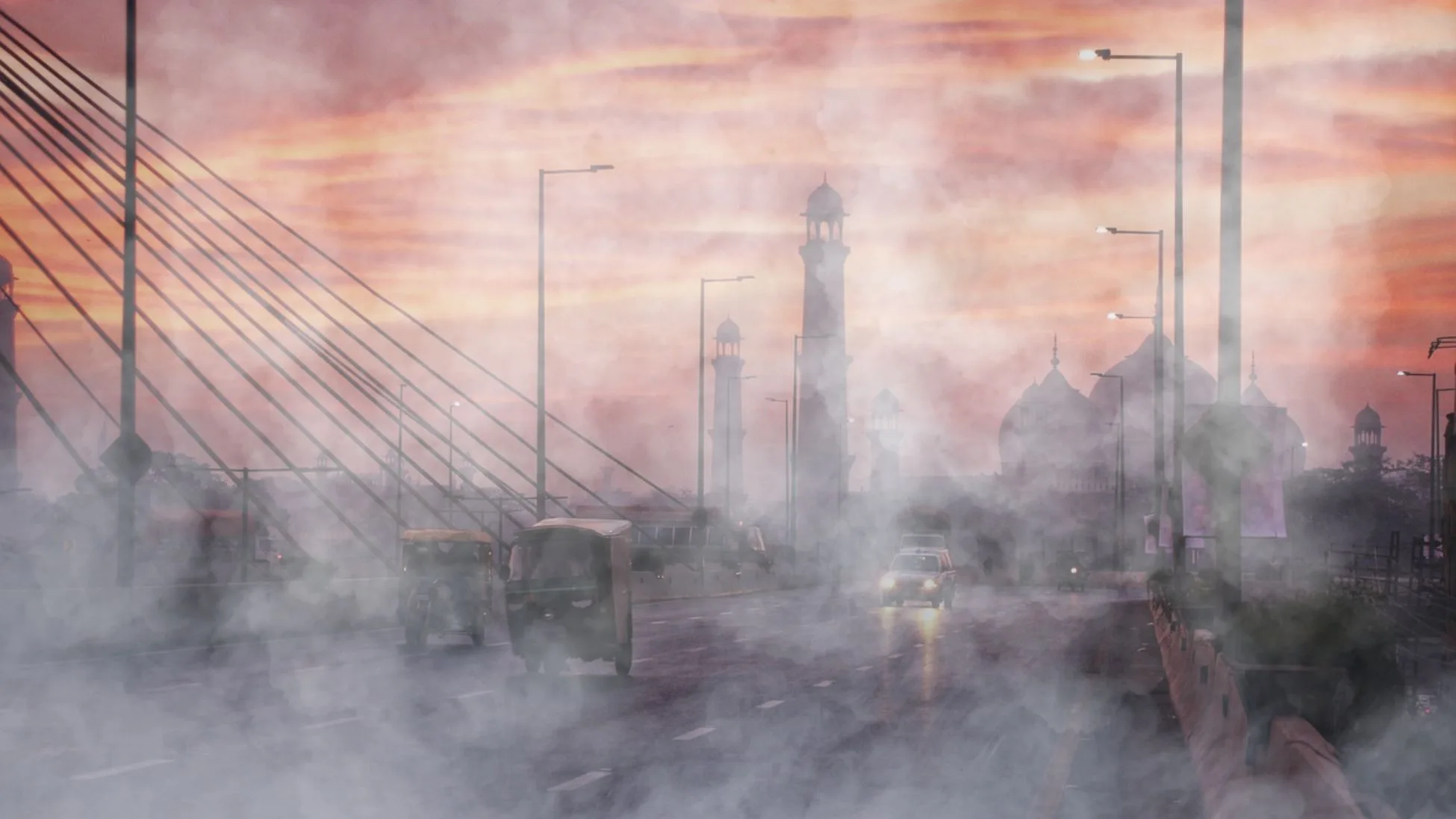A shift in weather patterns has resulted in smog reaching dangerous levels in Lahore, with the city ranking as the most polluted globally on Wednesday. The Air Quality Index (AQI) surged beyond the hazardous threshold of 500, hitting 515 in the morning.
The Pakistan Meteorological Department (PMD) had already issued warnings of critical smog levels, particularly in Lahore. In some areas, the AQI skyrocketed to unprecedented levels, with parts of the city recording AQI values as high as 800, one of the worst in the world. Gulberg reported the highest AQI at 822, followed by Model Town, DHA, and the American Consulate areas with 778, 790, and 680 respectively.
Temperatures in Lahore on Wednesday ranged from 22 to 33 degrees Celsius. As temperatures drop further, the PMD predicts another surge in smog levels in the coming weeks.
The Department of Primary and Secondary Health Care (PSHD) has issued a health advisory concerning the dangers of what they are calling the “fifth season.” The advisory explains that smog consists of harmful pollutants such as particulate matter (PM), Ozone (O3), Nitrogen dioxide (NO2), and Sulfur dioxide (SO2). Prolonged exposure can lead to serious health conditions including asthma, Acute Respiratory Infections (ARI), stroke, Allergic Conjunctivitis, and Ischemic heart disease (IHD).
The PSHD has urged heart and respiratory patients to take their medications regularly and advised the general public to wear masks outdoors, limit physical activities, and adopt eco-friendly practices. Farmers have been instructed to avoid burning crop residue to mitigate smog production.
To combat the crisis, the Punjab government has banned the burning of waste, tyres, rubber, and plastic. Smoke-emitting vehicles have been impounded, and over 300 brick kilns have been demolished to curb the release of toxic fumes. Authorities have also called for proper transportation and storage of construction materials and efforts to prevent traffic blockages and encroachments.
The directorate general of Public Health Services Punjab has advised local health authorities to establish smog counters, isolation rooms, and High Dependency Units (HDUs) in hospitals. Public awareness campaigns, including banners and streamers, are being displayed in key locations to educate citizens about smog prevention.
Additionally, the provincial government has mandated that hospitals maintain records of all smog-related patients to better monitor the health crisis.



